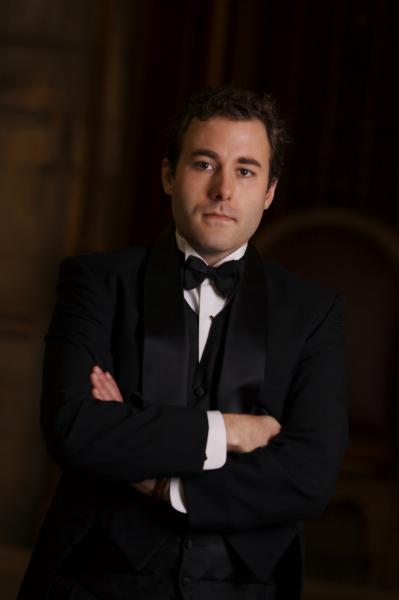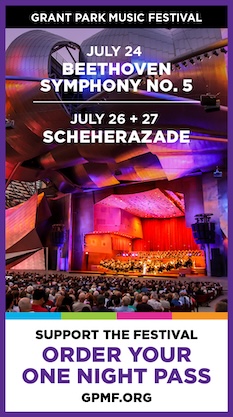Soloists lift Bach’s “St. John Passion” at Rockefeller Chapel
Chicago’s classical concert scene is fittingly rich in Lenten offerings at this time of year. Sunday afternoon Rockefeller Chapel presented its most substantial offering in that vein with a performance of Bach’s St. John Passion as part of its Quire and Place series. Sung by the Chapel’s professional ensemble, The Decani, and accompanied by the Rockefeller Chapel Baroque Orchestra conducted by James Kallembach, the performance took an intriguing and generally effective approach to Bach’s setting.
Kallembach, director of choral activities at the University of Chicago, called for the barest possible instrumental ensemble and a total of only nine singers—two on a part plus one dedicated to the narrative Evangelist. In his introductory notes the director said that this was not in an effort to recreate a performance from Bach’s time, though he included compelling evidence that Bach’s forces would have been similar. Rather the goal was to highlight “one of the most salient qualities of Bach’s great music—the intricacy and interplay of individual lines,” and this was achieved to varying degrees.
The reduced forces yielded the greatest dividends in the many chorales, where the vocal textures were indeed transparent and had an intimate, inward luminosity. The choruses, however, were less compelling. While Bach’s forces may have been along the lines of those used Sunday, his Thomaskirche in Leipzig was (and is) a much smaller venue than Rockefeller Chapel, which the eight-member chorus simply could not fill as amply as a smaller space.
The opening “Herr, unser Herrscher” suffered first from balance problems, the churning strings all but inaudible under the suspensions in the oboes, partially as a result of the singers standing immediately in front of the ensemble. This compromised the buildup to the voices’ entrance, which sounded more genteel than powerful. Having only an octet of singers also reduced the impact of the rabbling crowd choruses—especially “Kreuzige, kreuzige!” and “Wir haven ein Gesetz” where the masses call for Jesus’ crucifixion. On the other hand, the final “Ruht wohl” was poignant and affecting, conveying somber absolution.
While the choral ensemble numbers were a mixed bag, the solo arias were of a more consistently high order. Matthew Dean was a stirring Evangelist, his flexible tenor always attuned to the narrative content and dexterous in “Ach, mein Sinn.” An emotional highlight of the performance was his leveling intoning of the line “Und neiget das Haupt und verschied,” which had a chilling gravitas.
As Jesus, bass-baritone Andrew Schultze was consistently excellent. His “Betrachte, meine Seel” was ardent and ably accompanied by Brandon Acker on lute, and Schultze’s buoyant rendition of “Mein teurer Heiland” expressed due joy and enthusiasm for Christ’s promise of redemption. Carl Frank’s stentorian baritone proved well suited to the role of Pilate, and he brought elegant inflection to “Eilt, ihr angefochtnen Seelen.”
Soprano Kaitlin Foley gave beautiful renditions of her two arias. Her gracious “Ich folge dir” was delivered with a delicate tone, and she brought exquisite high-register singing to the soaring “Zerfließe, mein Herze.” The latter was enhanced with silken blend between flutist Kathie Stewart and oboist Kathryn Montoya on oboe da caccia. Mezzo-soprano Lindsey Adams artfully sang “Von den Strikken meiner Sünden” with growing pathos on each iteration of the opening line, well supported by oboists Montoya and Sung Lee.
The higher male voices left some room for improvement. Tenor Micah Dingler’s “Erwäge, wie sein blutgefärbter Rükken” was faceless and somewhat strained. Countertenor Lon Ellenberger had a haunting upper range in “Es ist vollbracht!” but struggled around his vocal break. The latter aria, however, saw some of the afternoon’s finest solo instrumental playing in Anna Steinhoff’s eloquent gamba obligato.
After initial problems cohering, the period instrumental ensemble came together and provided burnished accompaniment to most of the performance, with Kallembach’s understated direction tasteful and intelligent throughout.
Posted in Performances

